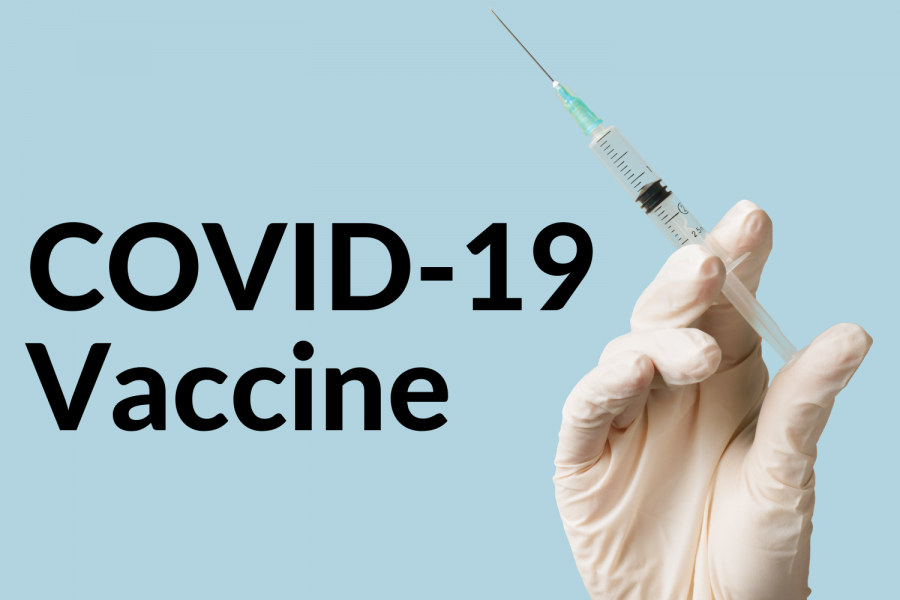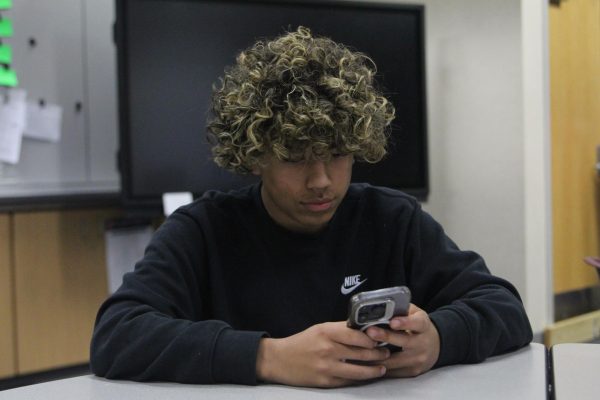COVID-19 vaccine conspiracy theories encourage ignorance, prolong pandemic
Graphic Illustration by Blake Loria
Vaccine distribution for COVID-19 in the U.S. began in December, and along with that came the vaccine rumors. Social media has made it easy to share misinformation, especially with conspiracy theories about vaccines. From myths about fetus tissue being used in the creation of vaccines, to concerns surrounding the deaths of people who take the COVID-19 vaccine, the entire discussion becomes a game of telephone with miscommunication from both sides.
What do autism, infertility and Bill Gates have in common?
Not vaccines.
With the development of the Pfizer and Moderna COVID-19 vaccines, the heated topic surrounding such vaccines and their side effects has been pushed to the front of the pandemic discourse.
Before COVID-19, misconceptions surrounding vaccines were quite a nuisance. Even though the conspiracy theories are the same amount of ignorant, a year of people isolating, businesses shutting down and around 451,000 coronavirus deaths perfectly showcases the dangers that can arise from those who refuse vaccinations.
Of course, unvaccinated people are not the reason so many have died from the virus of even caught it as there was not a vaccine until mid-December. However, especially with the COVID-19 pandemic still active, those in opposition to taking a vaccine are putting those who are not able to at risk.
Many know the infamous classic arguments against vaccines: they will cause babies to develop autism, unvaccinated children are healthier, and one may grow an extra limb from taking them. OK, that last one is hyperbolic, but regardless of these bizarre claims, the rates of unvaccinated children are rising in the U.S., according to the Centers for Disease Control and Prevention. The heart of the issue is not whether or not vaccines are harmful–they are not, by the way–it is the uncertainty surrounding why people are afraid of taking vaccines.
It is important to recognize it is not only people who spend time on Facebook groups discussing the possible side effects who may refuse a COVID-19 vaccine. Throughout the halls of Canyon High, in stores across Amarillo, in online discussions through Twitter–many people have announced a weariness to the vaccine. Ranging from concerns around how quickly the vaccine was developed to accusations of shady dealing with vaccine distribution, the issue is wide spread.
Many of the fears and uncertainties about the COVID-19 vaccine in particular stem from a misunderstanding of the side effects of the Pfiser and Moderna vaccines. According to the U.S. Food and Drug Administration, the most common side effects of the vaccines are tiredness, chills, joint pain, muscle pain and fever. Symptoms typically last several days, with side effects more common after the second dose of the vaccine. Symptoms are normal and are a sign the body is building immunity to the virus. For extensive research, readers can look into the FDA’s findings.
Otherwise tame symptoms compared to the actual coronavirus, many people are unaware of the side effects and how vaccines work. According to the CDC, it can take the body several weeks for the body’s immune system to develop the germ-fighting tools necessary to fight a virus. Although not all vaccines function the same, the COVID-19 vaccines operate by a first does meant to begin building protection from the virus and then a second shot a few weeks later for the most protection the vaccine can offer.
Although many claims against vaccines originate from a place of misunderstanding, parents who choose to not vaccinate their children, or even those who will choose to abstain from receiving the COVID-19 vaccine should not be harassed or made to feel dumb. They should instead be encouraged to educate themselves with professional opinions, whether from a family doctor, or from the CDC.
Baseless conspiracy theories about vaccines are not only dangerous for those at risk of dying from diseases like measles, but are also causing the state of the pandemic to remain at a stand still. To be able to move past the COVID-19 pandemic and ensure the virus is prevented from spreading even more, people must get vaccinated. Of course, people should have a choice in taking the vaccine or not.
Moreover, the concerns of those unsure about the vaccines should not go unheard. Whether from a place of misunderstanding or malice, 2020 was full of uncertainty and drastic change, and we should all work to make sure 2021 is a better year. The COVID-19 vaccines have been a relief to many, but it is still important everyone works toward preventing further spread of the virus.

Howdy! I'm Blake Loria, and I want to pursue a career in journalism, so I am honored to be serving as editor-in-chief for my third and final year on staff. As a senior, I am quite involved around Canyon High, so when I am not editing or practicing for...








